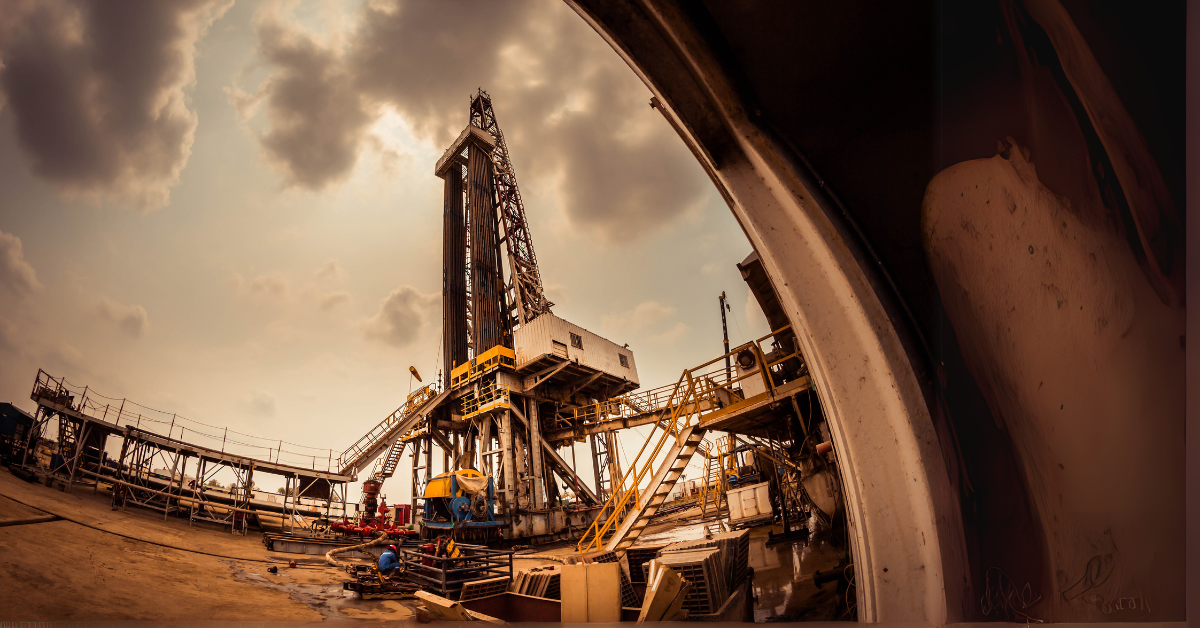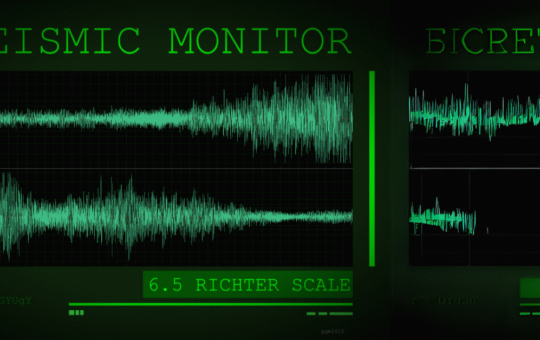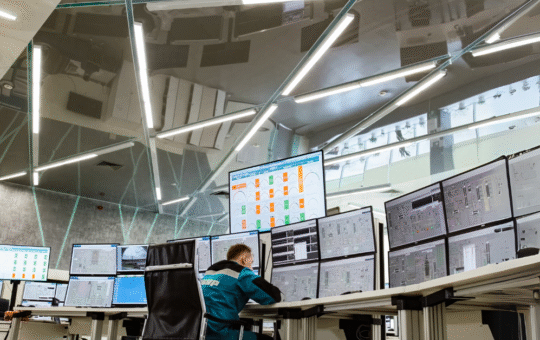
Level 6 Diploma in Advanced Drilling Technology and Techniques
- Cutting-Edge Knowledge: Learn about the latest developments and technologies in the drilling sector.
- Advanced Skillset: Equip yourself with skills to handle complex drilling operations and solve technical challenges.
- Career Advancement: Enhance your career prospects with expertise in high-demand areas such as deepwater drilling, horizontal drilling, and well completion.
- Practical Focus: Apply advanced techniques to real-world drilling scenarios and operations.
- Industry Recognition: Achieve a diploma that’s recognized within the global oil and gas industry.
- Analyze and apply advanced drilling techniques in various operational settings.
- Understand the principles of well design and optimization, including safety, environmental, and economic considerations.
- Evaluate and select the right drilling technologies for specific challenges, such as deepwater or offshore drilling.
- Understand the importance of geomechanics, well control, and data analysis in modern drilling operations.
- Design and optimize drilling programs, taking into account technological advancements and operational constraints.
- Implement advanced well completion techniques to maximize production efficiency and minimize costs.
- Introduction to Advanced Drilling Techniques
- Overview of the drilling industry and its evolution.
- Understanding the latest trends and technological advancements in drilling.
- Well Design and Planning
- Principles of well design, including the selection of equipment, drill bits, and drilling fluids.
- Methods for optimizing well trajectory and planning horizontal, vertical, and directional wells.
- Advanced Drilling Equipment
- Overview of the latest drilling technologies, including automated rigs, advanced drill bits, and downhole tools.
- Evaluating the role of advanced technologies in improving drilling efficiency and safety.
- Drilling in Challenging Environments
- Techniques for drilling in deepwater, offshore, and extreme conditions.
- Handling well control issues and equipment failure in challenging environments.
- Geomechanics and Drilling Optimization
- Understanding the role of geomechanics in well stability and drilling performance.
- Techniques for optimizing drilling parameters, such as weight on bit and rotary speed, for maximum efficiency.
- Well Control and Safety Systems
- Analyzing well control techniques, blowout prevention, and emergency response systems.
- Ensuring safety and environmental protection during drilling operations.
- Drilling Fluids and Cementing
- Advanced understanding of drilling fluid systems and their role in drilling efficiency and well integrity.
- Cementing techniques for wellbore stability and integrity.
- Data Acquisition and Drilling Automation
- Use of real-time data acquisition and monitoring systems in drilling operations.
- Incorporating automation and digital technologies to improve drilling performance.
- Well Completion and Production Optimization
- Techniques for well completion, including the use of advanced technologies like multi-stage fracturing and artificial lift systems.
- Maximizing production through advanced well completion and optimization techniques.
- Drilling Engineer
- Wellsite Supervisor
- Operations Manager (Drilling)
- Drilling Technologist
- Drilling Optimization Specialist
- Well Completion Engineer
- Industry-Focused Curriculum: Learn advanced techniques used by professionals in the field today.
- Expert Instructors: Learn from experienced instructors with extensive industry experience in drilling operations.
- Hands-On Learning: Practical modules, case studies, and real-world simulations to enhance your skills.
- Global Recognition: Certification that is recognized worldwide in the oil and gas sector.
- Flexibility: Designed for working professionals who want to enhance their expertise in advanced drilling technology.
Study Units
- Introduction to Advanced Drilling Techniques
- Overview of the drilling industry and its evolution.
- Understanding the latest trends and technological advancements in drilling.
- Well Design and Planning
- Principles of well design, including the selection of equipment, drill bits, and drilling fluids.
- Methods for optimizing well trajectory and planning horizontal, vertical, and directional wells.
- Advanced Drilling Equipment
- Overview of the latest drilling technologies, including automated rigs, advanced drill bits, and downhole tools.
- Evaluating the role of advanced technologies in improving drilling efficiency and safety.
- Drilling in Challenging Environments
- Techniques for drilling in deepwater, offshore, and extreme conditions.
- Handling well control issues and equipment failure in challenging environments.
- Geomechanics and Drilling Optimization
- Understanding the role of geomechanics in well stability and drilling performance.
- Techniques for optimizing drilling parameters, such as weight on bit and rotary speed, for maximum efficiency.
- Well Control and Safety Systems
- Analyzing well control techniques, blowout prevention, and emergency response systems.
- Ensuring safety and environmental protection during drilling operations.
- Drilling Fluids and Cementing
- Advanced understanding of drilling fluid systems and their role in drilling efficiency and well integrity.
- Cementing techniques for wellbore stability and integrity.
- Data Acquisition and Drilling Automation
- Use of real-time data acquisition and monitoring systems in drilling operations.
- Incorporating automation and digital technologies to improve drilling performance.
- Well Completion and Production Optimization
- Techniques for well completion, including the use of advanced technologies like multi-stage fracturing and artificial lift systems.
- Maximizing production through advanced well completion and optimization techniques.
Upon completion of this diploma, learners will be able to:
- Analyze and apply advanced drilling techniques in various operational settings.
- Understand the principles of well design and optimization, including safety, environmental, and economic considerations.
- Evaluate and select the right drilling technologies for specific challenges, such as deepwater or offshore drilling.
- Understand the importance of geomechanics, well control, and data analysis in modern drilling operations.
- Design and optimize drilling programs, taking into account technological advancements and operational constraints.
- Implement advanced well completion techniques to maximize production efficiency and minimize costs.
The Level 6 Diploma in Advanced Drilling Technology and Techniques is tailored for professionals in the oil and gas industry looking to enhance their expertise in modern drilling operations. This course is ideal for:
Drilling Engineers
Professionals responsible for the design, optimization, and execution of drilling operations in various environments, including deepwater and offshore fields.
Wellsite Supervisors
Experienced supervisors overseeing day-to-day drilling operations who want to deepen their understanding of advanced drilling technologies and techniques.
Operations Managers (Drilling)
Managers overseeing drilling operations who need a strategic understanding of modern drilling practices, well planning, and performance optimization.
Drilling Technologists
Specialists in drilling technology and equipment who wish to gain advanced knowledge of the latest advancements in drilling techniques and operational improvements.
Drilling Optimization Specialists
Experts in optimizing drilling performance, including efficiency, safety, and cost-effectiveness, using advanced technology and methods.
Well Completion Engineers
Engineers involved in the completion of wells, including advanced techniques like multi-stage fracturing and artificial lift systems, looking to refine their skills.
Petroleum Engineers
Engineers with a focus on oil and gas extraction who wish to specialize in advanced drilling operations, equipment, and technologies.
Project Managers in Drilling Operations
Professionals managing large-scale drilling projects, ensuring the safety, efficiency, and optimization of drilling and completion processes.
Geomechanics Experts
Specialists in wellbore stability, pressure analysis, and the impact of geomechanics on drilling performance, looking to expand their knowledge with advanced techniques.
Our assessment process is designed to ensure every learner achieves the required level of knowledge, skills, and understanding outlined in each course unit.
Purpose of Assessment
Assessment helps measure how well a learner has met the learning outcomes. It ensures consistency, quality, and fairness across all learners.
What Learners Need to Do
Learners must provide clear evidence that shows they have met all the learning outcomes and assessment criteria for each unit. This evidence can take different forms depending on the course and type of learning.
Types of Acceptable Evidence
Assignments, reports, or projects
Worksheets or written tasks
Portfolios of practical work
Answers to oral or written questions
Test or exam papers
Understanding the Structure
Learning outcomes explain what learners should know, understand, or be able to do.
Assessment criteria set the standard learners must meet to achieve each learning outcome.
Assessment Guidelines
All assessment must be authentic, current, and relevant to the unit.
Evidence must match each assessment criterion clearly.
Plagiarism or copied work is not accepted.
All learners must complete assessments within the given timelines.
Where applicable, assessments may be reviewed or verified by internal or external quality assurers.
Full learning outcomes and assessment criteria for each qualification are available from page 8 of the course handbook.
Top Courses
Related Courses
Let's Get in touch
Deleting Course Review
Course Access
This course is password protected. To access it please enter your password below:



